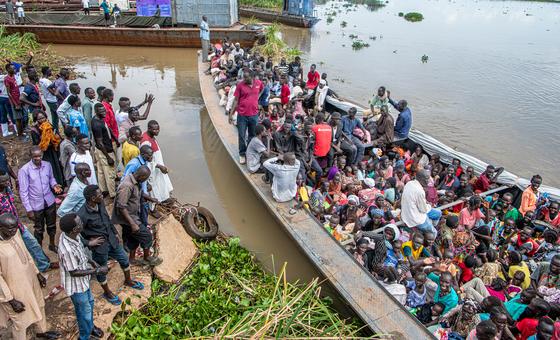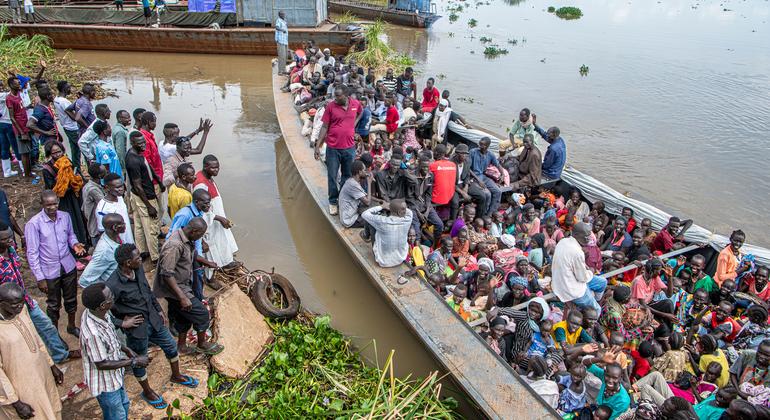
OCHA spokesperson Jens Laerke told reporters in Geneva that out of 71 aid worker deaths recorded so far this year, 22 had been working in South Sudan and 19 in Sudan.
The victims are overwhelmingly local humanitarians working on the front lines of the response, Mr. Laerke said.
He stressed that attacks on aid workers and aid facilities are violations of international humanitarian law and insisted that perpetrators must be held accountable.
Rules of warfare
“Parties to conflict have an obligation to respect the laws of war without exceptions,” he said.
Mr. Laerke highlighted the dire humanitarian needs in both countries and the funding gaps. The humanitarian response plan for Sudan remains only 32 per cent funded while the response in South Sudan has received 53 per cent of the required funds.
The World Health Organization (WHO) also sounded the alarm about the situation in the South Sudan, where three in four people need humanitarian assistance and two in every three are facing crisis levels of hunger.
Over 25 million Congolese in food crisis: UN agencies
More than 25 million people continue to face crisis or emergency levels of food insecurity in the Democratic Republic of the Congo (DRC), according to the latest international food security report (IPC) released on Friday.
The country continues to be one of the world’s largest food crises, said the Food and Agriculture Organization (FAO) and UN World Food Programme (WFP).
Despite high levels of hunger, DRC boasts fertile lands and abundant water resources that should make it self-sufficient – if not a net exporter.
However, various underlying causes such as intensifying conflict in the restive east and a lack of investment in rural development, are preventing the country from producing enough supplies.
“I am alarmed by the number of people who continue to face hunger across the country,’’ said Peter Musoko, the World Food Programme’s Country Director and Representative in the DRC.
“In such a fragile context, the cost of inaction is truly unthinkable. Together, we need to work with the government and the humanitarian community to increase resources for this neglected crisis.”
Niger floods cause death and destruction as rains continue
As heavy rains continue in Niger, UN humanitarians are growing increasingly concerned by flooding which is hitting the south of the country hard.
“Last week alone, 13,000 people were affected and since July, according to the Ministry of Humanitarian Affairs, some 160,000 people have been impacted by the floods with more than 14,000 houses that have collapsed and over 50 deaths”, said UN Spokesperson Stéphane Dujarric, briefing reporters in New York on Friday.
Military leaders seized power in Niger in July, ousting the democratically elected president Mohamed Bazoum, who has remained in detention ever since. Some western nations and regional powers have imposed sanction on the new military rulers.
The de facto authorities and aid agencies continue to support the aid response for Nigeriens impacted by the severe flooding and have distributed mattresses, mosquito nets, blankets and other essential supplies, said Mr. Dujarric.
More than 13,000 families have also received food support.
“Humanitarian colleagues are warning that major gaps persist, particularly in the areas of shelter, water and sanitation, and health. We are also working with communities on flood preparedness”, added the Spokesperson.



